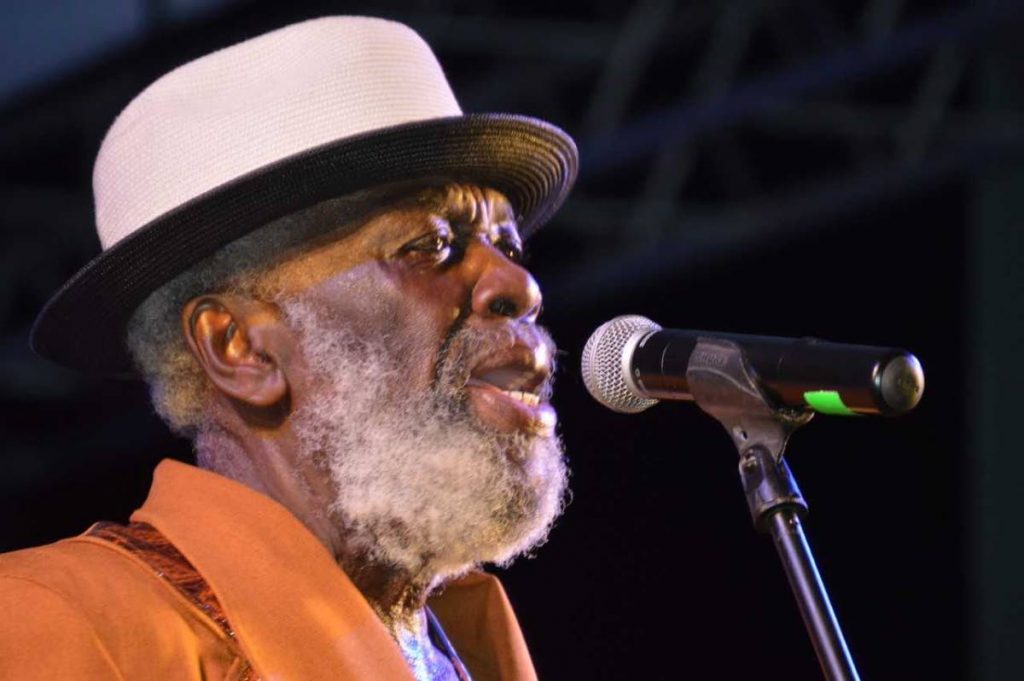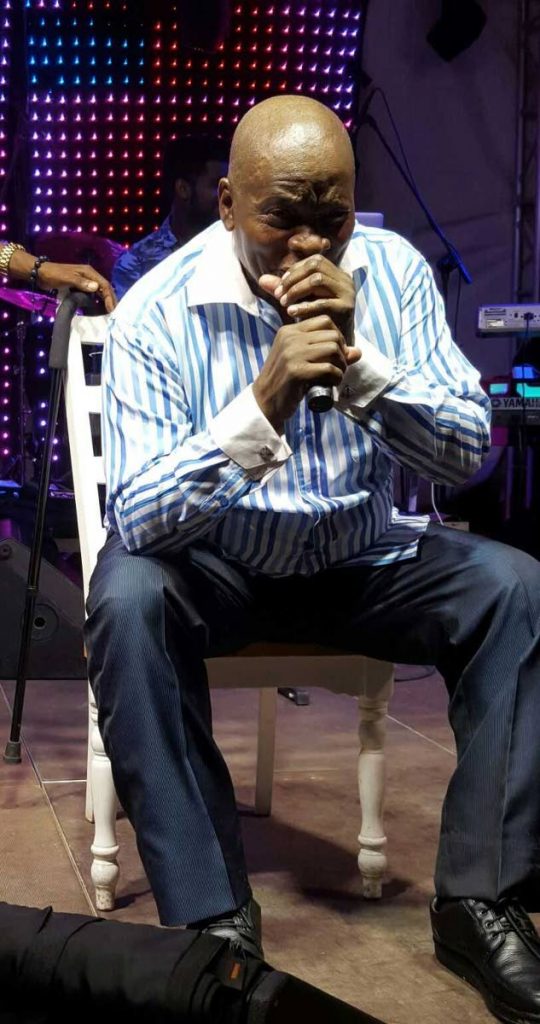Calypso humour disappearing

WHEN Theophilus Philip – the Mighty Spoiler – tickled audiences with his catchphrase “Ah wanna fall,” he could never have envisioned just how much humour in calypso would take a plunge in the future.
The former railway porter, who sang at the House of Lords Tent in 1946, and became a founding member of the Young Brigade Tent, earned a calypso crown in 1948 with Royal Wedding and another crown in 1953 with Bed Bug, a classic in calypso humour.
His 1955 offering, Picking Sense Out of Nonsense, proved worthy of another calypso crown, while his second place in 1957 with Magistrate Try Himself solidified his reputation as a master of humour.
Humour helped calypsonians win calypso crowns in the colonial period when Sparrow emerged as a champion of political and social commentary and an adversary of colonialism. His story of a frolic on the beach with Mae Mae helped earn him a win in 1960.
Humour was so strong that the following year Dougla upset Sparrow with two humorous calypsoes: Lazy Man and Split me in Two.
As calypso increasingly tackled important political and social issues like independence, calypso humour gravitated more towards political picong.
Still, Clifton Ryan, the Mighty Bomber, a protégé of Spoiler, won his crown in 1964 with the help of Bomber’s Dream, in which he “bounces up Spoiler,” who gives him humorous advice on how to tackle his rivals.
Humour held its own in the calypso tents, where patrons came to laugh as well as ponder the news of the day, but by the time Dillary “Cypher” Scott pulled a calypso crown out of the hat in 1967 with Last Election, biting political and social commentary had become entrenched in the tents and humour was on the wane.
Calypsonians like Sparrow kept it alive with social satire like Dan is the Man in the Van, which criticised colonial education, and Shadow’s wry sense of humour surfaced in witty lines and whole calypsoes like Scratch My Back.

Miraculously, Penguin was crowned in 1984 with Sorf Man, a suggestive calypso, and Livin’ in Jail, a potent social commentary on the emergence of burglar-proofed houses. But humour, an important part of the genre’s history, was clearly changing and even disappearing.
Dr Kim Johnson, director of the Carnival Institute, says, “Trinidadians are famous for humour, which could be a sword and a shield, and we’ve used it for both in our history.
“In the early days, Carnival characters always had humour – a satire or parody mocking the upper class. Carnival allowed people to criticise the rulers. We used humour and double entendre to get around censorship. With picong, you could heckle your friends and make joke about your rivals.”
Johnson feels a type of humour – smutty calypso – became more prevalent during World War II, with more nightclubs catering to American soldiers.
“Calypso became more risqué, because soldiers didn’t want political discourse. Sparrow was famous for that type of humour.
“In all cases, humour was based on wordplay, a control of language both standard English and dialect. Trinidadians are very good at that,” says Johnson. “We are still storytellers, but picong is sadly on the decline. A change of social relations has made it more difficult. Young people now will pull out a gun or knife and stab you. I see a lot of people getting killed now for what would passed as picong long ago.”
Sound engineer Robin Foster sees humour’s shifting fate reflected in society and its music.
“What happened to humour in general?” he asks. “Calypso always follows what is happening in society, and not much is a laughing matter right now. Historically, we had jazz and blues influence in music, which had some suggestive lyrics, and now it is more a hip hop influence, which doesn’t reflect humour.”
Neville Brown, who sings as Bunny B, says there are different types of humour: “raw humour, known as smut – like what Brown Boy and Zandolie sang; serious topics with a humorous twist – like what Shadow, Trinidad Rio and I sing, along with satire, like what Duke sang. Cro Cro is brazen, but he sings serious humour, and there is straight humour like what Spoiler and Brigo sang."
Brown blames the demise of the humorous calypso on Carnival judges. “I have been singing humour for my whole career, and got nothing for it. I sit and watch people going to the Savannah and get ham and lamb. So I tried that, and got into the finals.”
Brown says there just doesn’t seem to be a way any more for humour to compete with serious calypsoes.
“A lot of people don’t understand what humour is,” says Bunny B’s brother Daniel “Trinidad Rio” Brown, who, along with Funny, is still considered a traditional calypsonian when it comes to humour.
“People feel everything that makes you laugh is humour. But it’s more than that. People in authority don’t understand the layers of humour.
“Calypso is so political now. The people being promoted in competitions can’t do humour because it’s the hardest type of calypso to write because of the double entendre. You have to get in people’s head and make them laugh for four verses.
Both Rio, known for clever calypso like No Drawers, Body Parts and Travelling Man, and Donric “Funny” Williamson, known especially for Farmer Brown, a humorous political picong, decided not to perform regularly in traditional calypso tents as long ago as 2004. They started their own version of freelancing.
“Kaiso is storytelling, and humour has a lot of creativity, and the generation now really doesn’t have that skill,” says Funny. “They weren’t taught. The music pushed down their throat didn’t demonstrate humour, so they’re not interested in that. Everything is rhythm, a beat and a chant now, and they have a limited vocabulary too.
“I’m not against them for what they’re doing, because that’s how they grew up."
Now, Rio says, political bashing and slander has become the new humour.
“A lot is about voice too,” says Bunny B. “If a man is singing humour with a rough or exaggerated voice, he can’t win over a man with a sweet voice. If Louis Armstrong was singing kaiso, he would have never gone anywhere here.”
Calypsonians agree that poor judging in calypso competitions is a big factor in humour's decline. Sadly, humorous calypso has paid the price.

Comments
"Calypso humour disappearing"